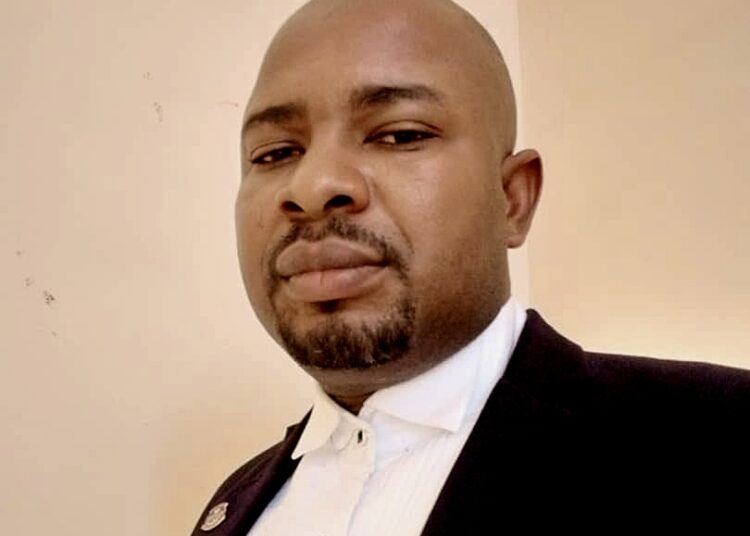Managing facilities in Nigeria, like in many other developing countries, comes with its own set of challenges which often stem from a combination of economic, social, and infrastructural factors. Some common problems associated with managing facilities in Nigeria are not limited to the scope of the managers’ competence which brought about the need to dissect such for the interplay of resources among parties.
Parties in this case could be the facility managers, and the clients, which in this case could be individuals, government, corporate bodies, and indeed the direct users herein referred to as tenants. A good understanding of the associated roles and factors could guarantee a good understanding of what role a party should take in the satisfactory management of facilities to all concerned.
Facility Management is an interdisciplinary field primarily devoted to the maintenance and care of commercial or institutional buildings, such as office complexes, residential estates, hotels, and much more that are committed to the care of experts for effective handling.
The European Committee for Standardization described facility management as ‘’the integration of processes within an organization to maintain and develop the agreed services which support and improve the effectiveness of its primary activities”. As such, it is within the purview of facility managers to perform the operational phases of a facility or building’s life cycle, which normally extends over many decades.
He or she promptly responds and repairs minor discrepancies in the facility; develops and executes a system of regularly scheduled maintenance actions to prevent premature failure of the facility, its systems, and components; completes major repairs based upon lowest life cycle cost and identifies design and complete improvement projects to reduce and minimize total operating and maintenance costs.
The roles also extend to operating the facilities/utilities in the most economical manner while providing necessary reliability and providing for easy and complete reporting and identification of necessary repair and maintenance work; performing accurate cost estimation to ensure the lowest cost solutions to maintenance problems, maintaining the proper level of material and spare parts to support timely repairs and accurately track the cost of all maintenance work.
An effective facility management system also includes scheduling all planned work in advance, allocating and participating in staff requirements to meet unplanned events, monitoring the progress of all maintenance works, maintaining all complete historical data concerning the facility in general and requirements and components in particular and continually seek workable engineering solutions to maintenance problems.
Although maintenance can adopt either custodial, corrective, or preventive strategies, all are still tailored towards achieving the same maintenance success in the best possible means to ensure that the facility receives the necessary attention.
Effective facility management practices in Nigeria, as in any other country, involve the efficient and strategic management of physical assets and infrastructure to support the core business functions of an organization as it encompasses a wide range of activities, including maintenance, security, space planning, and sustainability.
It is then imperative for facility managers to relate with some key practices that can contribute to effective facility management to eliminate dispute, ensure durability and largely put in place a safe and efficient structure and components that can outlast decades, and if not centuries as seen in countries in the United Kingdom where public and private properties have been lasted for centuries.
It then behoves a facility manager to develop a comprehensive facility management plan that aligns with the organization’s overall business objectives, considering long-term goals and anticipating changes in the business environment to ensure the facility can adapt accordingly.
He should also be prepared to implement a robust asset management system to monitor and maintain all physical assets and regularly assess the condition of equipment and facilities to identify maintenance needs and replacement schedules.
Establishing a preventive maintenance programme to minimize downtime and extend the lifespan of equipment and facilities will also help to quickly address and resolve any issues to prevent the escalation of little problems from snowballing into major disruptions.
An efficient facility management system must also comply with local health and safety regulations to create a safe working environment through regular conduct of safety audits and training for staff to minimize accidents and injuries.
In addition, necessary steps must be adopted to implement effective security measures to protect the facility and its occupants by utilizing security technology, such as surveillance cameras and access control systems, to enhance overall security. This will ward off uninvited invaders and protect the space and primary users from harm to strengthen their confidence during tenancy.
As experts in the field, we are also expected to discharge the role of optimizing the use of available space to improve efficiency and reduce costs. And we do this by regularly reviewing space requirements and adjusting layouts as necessary to accommodate changes.
Integrating sustainable practices into facility management is also essential in providing services such as energy-efficient technologies and waste reduction initiatives. It is also within the scope of facility management to consider the adoption of cost-efficient measures like renewable energy sources and environmentally friendly building materials.
Embracing technology solutions, such as Computerized Maintenance Management Systems (CMMS) and Building Management Systems (BMS), are indeed necessary to streamline operations and improve efficiency by exploring smart building technologies for energy management, security, and occupant comfort.
Realizing that these cannot exist in isolation, managers of facilities must develop robust and strong relationships with reliable vendors and service providers regularly assess vendors’ performance and negotiate contracts to ensure cost-effectiveness.
The space for continuous training and capacity development for facility management staff is also key to keeping them updated on industry best practices and emerging technologies as these will foster a culture of continuous improvement and innovation aside from staying constantly informed about and complying with local regulations related to building codes, environmental standards, and occupational health and safety.
Open communication channels must indeed the opened regularly between facility management, and other departments within the organization and indeed even with the tenants to rapidly respond to feedback and concerns from occupants of the facility.
Implementing these practices can contribute to the effective management of facilities in Nigeria, promoting sustainability, safety, and overall operational efficiency provided they are adapted as practices to meet the specific needs of the organization and parties in each facility.
* Esv Ajala (ANIVS RSV), an Estate Surveyor and Valuer, is based in Abuja.





